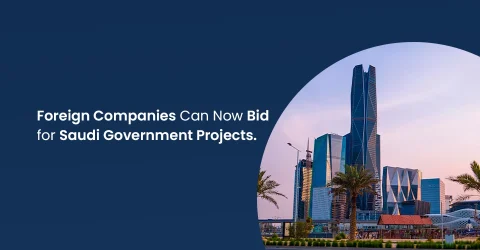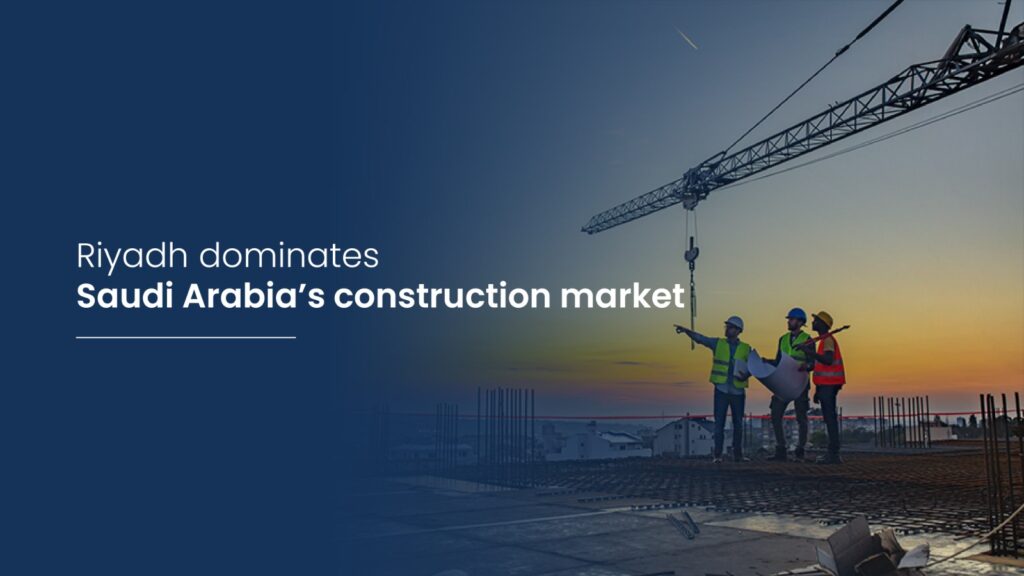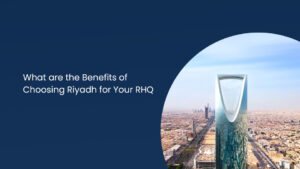According to a new research, around 40% of the total value of existing construction contracts in Saudi Arabia accounts to Riyadh and nearer areas at a worth of US$ 54 billion.
The provinces of Mecca, which encompasses Jeddah, and Tabuk in the north of the kingdom are next after the capital region with $28. $5 billion and $28.5 billion in awarded contracts each respectively, real estate firm Knight Frank stated on Monday in its Construction Landscape Review – H1 2024. New residential construction was the largest segment by project value of 31 percent in 2023 at a worth of $43 billion, while the energy and utilities sectors consisted of 27 percent of total project value with $35 billion.
Knight Frank estimated that the value of construction output in the kingdom will reach $181bn by the end of 2028, which, according to the consultancy, will help Saudi Arabia become the biggest construction market globally. Restrictions such as budget deficits, higher rates of interest, increased but still insufficient FDI which has led some analysts believe that the level of Saudi Arabia’s construction boom might have to be reduced in future.
According to Knight Frank, Saudi Arabia is expected to grow to $181.5 billion by the end of year 2028.
- The research found out that Riyadh alone has 40 percent of the existing contracts.
- Total value of developments is on $54 billion.
- Mecca and Tabuk follows the capital region
Riyadh is one of the key players in the construction industry in the kingdom which is growing at an alarming rate. Being at the heart of the Vision 2030 program designed to help transform the Saudi Arabian economy, Riyadh is at the forefront of the major construction projects to develop the infrastructure of the new Saudi Arabian cities. Today it contributes to almost 40% of total construction business of Saudi Arabia and new Billion dollar+ projects are changing the face of the skyline.
Riyadh construction market has strongly tied its growth with the strategic Vision 2030 program, which has been designed to diversify the revenue for the country. This vision has included urban development as one of the key pillars hence has seen investment into infrastructure of the city. The Riyadh Metro, one of the largest undertakings in the world, is a classic illustration and proof of Riyadh’s determined efforts to take on the charge of updating its existing transportation management and increasing urban transport accessibility.
Others are the King Abdullah Financial District, the various multi-home projects to cater for the increasing housing needs in the country. These projects not only improve the current infrastructure of the city but also make Riyadh as an international city for doing businesses and investments.
Major international and local construction firms are therefore heavily involved in realization of these projects. Many firms are at the forefront with the likes of Bechtel, Parsons Corporation, and Nesma & Partners Contracting Co. securing contracts worth several billions. Not only they are participating in construction of physical facilities of the city, these firms are involved in knowledge and technology transfer, which is indispensable for further development of the industry.
In February the Public Investment Fund of Saudi Arabia, the kingdom’s sovereign wealth fund, revealed that it had invested more than $1. 3 billion in the equity of four major domestic construction firms as part of the reinforcement of the kingdom’s stake in the sector. It is believed that with the addition of this amount of capital, more growth will be realized in Riyadh and in other areas of the kingdom.
However, the construction industry is not without certain challenges even though there is a raising construction magnitude. Another emerging concern is the high cost of constructing which has been made worse by disruptions in the supply chains globally. Further, the sector also faces a major challenge of skilled labour as the sector has largely depended on expatriate workforce. These challenges have sometimes times resulted in project delays or even extension of project costs.
But again the challenges do not outweigh the opportunities that are available in the use of wireless technology. There is a steady need for units in residential, commercial as well as industrial properties due to the increasing population of Riyadh. However, construction activities are believed to have a positive impact on the city’s real estate especially on the commercial construction segment. This trend is further fuelled by increasing identifications of Riyadh as a hub for business with many investors both from the foreign and local circles establishing their premise in the city.
With Riyadh taking a lion share in the construction market of Saudi Arabia, the city is all set to become one of the world class city. There are many mega projects on the drawing board and regular government and private funding, Riyadh has a bright future ahead in construction. The city has contributed immensely to economic and urban growth of the kingdom and will help in attaining the envisaged Vision 2030.

























